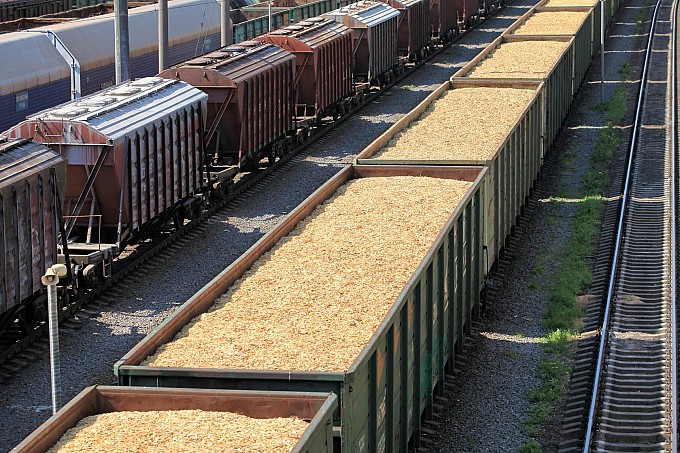
Farmers waited with bated breath for the decision of the Kazakh authorities on whether railway tariffs for the transportation of Russian grain would decrease. The point should have been made yesterday, at a meeting of representatives of the authorities of Kazakhstan and Russia in Orenburg. However, no official decision was made. The parties took a pause for reflection, the APK News agency reports.
"The issue requires discussion. Kazakhstan was not ready to make a decision.
Russia raised this issue (at the meeting – "APK News"). Kazakhstan noted that it will consider this issue. There was also a question about the transit of Kazakhstan's goods by rail through Russia, where the Russian Federation already restricts us. The parties took a pause to think," Timur Zharkenov, Deputy Chairman of the Board of the Atameken Chamber of Entrepreneurs, told the APK News agency.
To the question of whether this means that the issue of the tariff for the transportation of Russian grain through the territory of Kazakhstan has not been settled, the expert replied:
"There are probably no final points in such matters. There's always something going on."
- It turns out that this year and next year the tariff for Russia will be the same?
- As far as I understand, so far, - Timur Zharkenov answered.
Meanwhile, as the press service of the Ministry of Trade and Integration informed us, Kazakhstan offered Russians to participate in the construction of alternative transport routes.
A special role in the restoration of international logistics chains belongs to the North-South transit corridor, which provides the shortest distances for the transportation of goods between the EAEU countries and South Asia, East Africa and the Middle East, the ministry noted.
"We have activated the work of the eastern branch of the corridor through the Kazakhstan–Turkmenistan–Iran railway. In June 2022, a pilot train of 40 units of 40-foot containers with construction materials from Russia, sent to India, was launched. For 9 months of 2022, 79.2 thousand tons of cargo were transported in this direction, which is 8 times more than last year," the press service quotes Deputy Prime Minister- Minister of Trade and Integration of the Republic of Kazakhstan Serik Zhumangarin.
However, the successful development of the North-South corridor is hindered by "bottlenecks", the lack of a coordinated through railway tariff, and paper border crossing procedures. 50% of transit time is spent crossing borders, doubling the duration of transportation.
"In order to eliminate bottlenecks, it is necessary to digitalize the process of controlling cargo flow at the borders, harmonize customs procedures and coordinate tariff policy," Serik Zhumangarin believes.
Another big project of Kazakhstan is the development of a network of cross-border hubs, which includes the construction of five border centers of trade, transportation, logistics and industrial cooperation.
Work has begun on the creation of the ICTES "Central Asia" on the border with Uzbekistan. The plans include the creation and modernization of centers on the external borders with Russia, China, Kyrgyzstan and Iran. The Alatau hub will be created on the border with Kyrgyzstan. This is one of the busiest transit points for goods from Kyrgyzstan through Kazakhstan to the north to Russia, Europe and China.
Currently, work is underway to create a cross-border trade center "Eurasia" in the West Kazakhstan region, through which two key corridors "One Belt, One Road" and "North-South" run.
"Geographical proximity and access to the EAEU markets, combined with attractive conditions, will make the Eurasia industrial zone the most profitable for investors in China, India, and Turkey. We invite Russian colleagues and business to join the implementation of this large-scale project, which will become an industrial and logistics hub at the crossroads of economic corridors," Serik Zhumangarin announced a proposal from the Kazakh side.